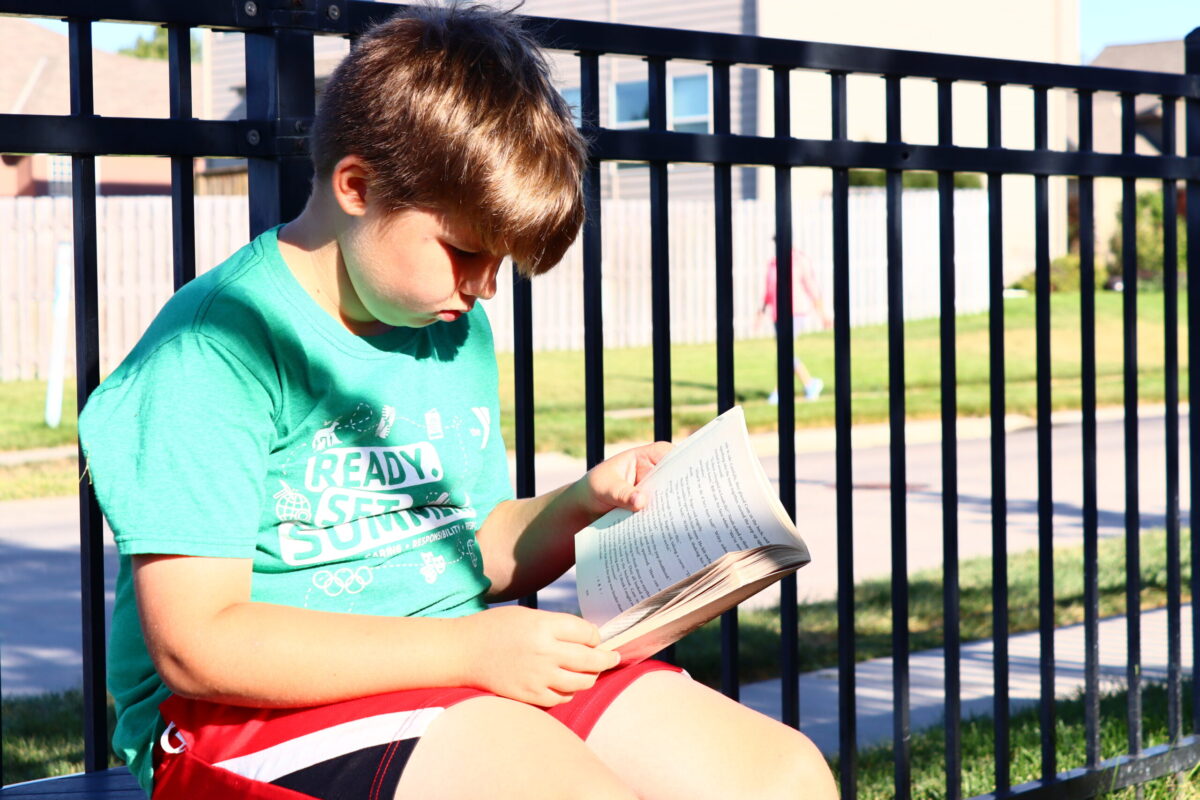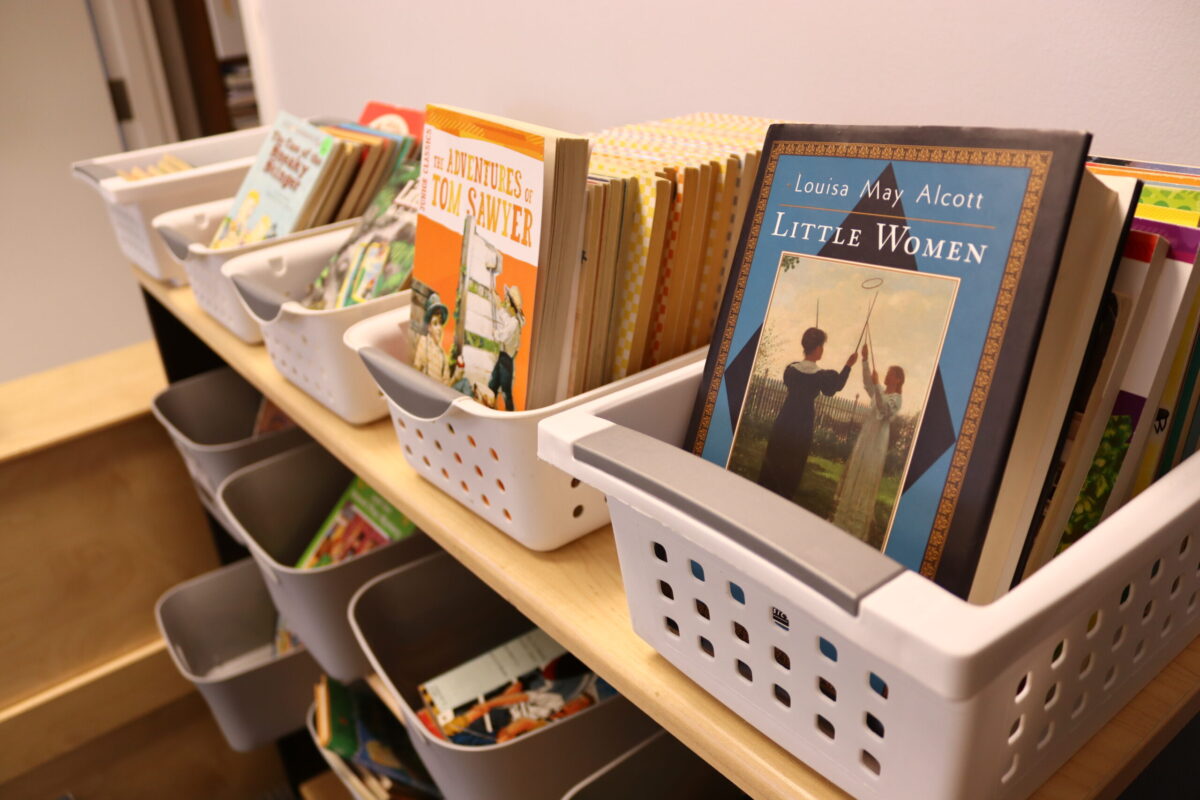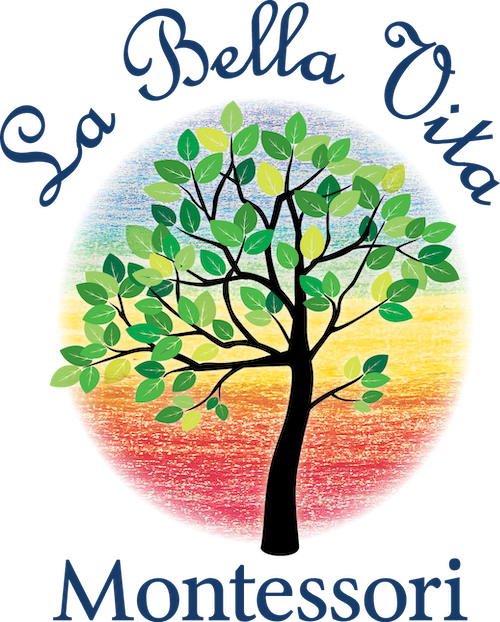
Almost all schools teach at least some literature to elementary students. Yet we see that children—and adults—are reading less and less.
Why don’t students learn to gain pleasure and value from great books, plays, and poems? The answer lies in understanding the purpose of learning literature. Most programs don’t have a clear conception of the purpose for reading literature, and default to technical or standardized-test-based learning outcomes: learning about symbolism or narrative point of view, or learning the bare rudiments of reading comprehension.
On our view, the goal of all education is to foster in a student the ability to live a full life. A guided journey through great literature affords our students the opportunity to develop some of the deepest foundations of such a life: the capacity for empathy and moral reasoning, deep inspiration, and profound self-understanding. There is little more important for a child—or an adult—than knowing how to be affected by and reflect upon great literature.
In math, we scaffold student learning with carefully designed, concrete learning materials. By interacting with particulars that a child can both literally and cognitively grasp, they come to more easily understand abstract quantitative relationships. Literature is the equivalent of math materials for the subject of human beings. A great work of literature offers a concrete experience—colorful characters, charged dilemmas, wrenching decisions, and dramatic consequences—that scaffolds a child’s ability to understand themselves and others. In seeing Anne Sullivan struggle to teach Helen Keller language in Gibson’s The Miracle Worker, they understand patience, empathy, persistence, how connectedness to others and the world foster dignity and self-governance, and much more.
Literature, approached correctly—taught as a series of enthralling mysteries about human beings—is a learning material that allows them to build their own character and practice moral reasoning. In our elementary programs, students learn to understand how to draw an abstract theme out of the choices and events of a story—and how to relate it to their own lives and development. The two key outcomes of our literature program are:
The ability to carefully and independently understand a work of literature. Students master the mechanics of reading complex works: such as identifying and learning unfamiliar words, analyzing literary elements, and meta-cognitive skills such as learning to problem-solve one’s own reading challenges. They learn how to do all of the above based on evidence from the text, ensuring that they are really reasoning about and learning from the details of the literary work, even difficult ones such as the poetry of Tennyson.
The ability to draw meaning and lessons from a work of literature. In addition to mastering the full stack of reading comprehension skills, our program teaches students to systematically relate the lessons of literature to their own life experience. Students identify the relevance of the characters and events they comprehend, and learn to actively process and evaluate, e.g. the heroism of Atticus in To Kill a Mockingbird, or the injustice of prejudice in Babe.

Our Literature Pedagogy
To achieve these outcomes, our elementary programs helps students learn from a specific selection of great literature. Our program uses works of literature that are:
- Rich and full-length, including novels, plays, and poetry (no excerpts, summaries, or child versions), chosen to offer accessibility to and also challenge for elementary students;
- Thematically profound, both to children and timelessly so, touching on topics such as courage, honesty, and independence;
- Exciting, value-driven, and inspiring (even when tragic), and that include strong characters who make choices and act accordingly.
- The approach is discussion-based, with students reading chapters independently and coming together for a teacher-guided discussion. The main topics for discussion are related to the outcomes above:
- Answering critical, specifically selected questions about the plot, theme, setting, and characterization, such as the motivation of a particular character—and what evidence in the work we can use to answer these questions;
- Drawing out personal connections with the novel, such as what resonates with them and why, parallels they see to their lives, and their own evaluations of the characters and events.

